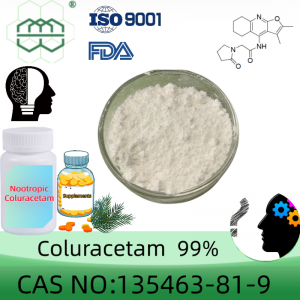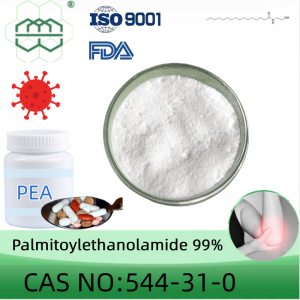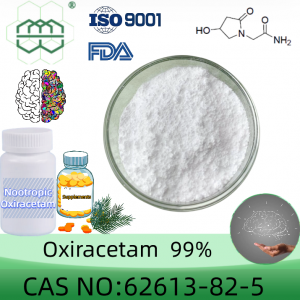Mitoquinone liquid mesylate manufacturer CAS No. : 845959-50-4 98% purity min. for supplement ingredients
Product Parameters
| Product name | Mitoquinone mesylate |
| Other name | Mitoquinone methanesulfonate;MitoQ;Mitoquinone (mesylate) |
| CAS No. | 845959-50-4 |
| Molecular formula | C38H47O7PS |
| Molecular weight | 678.81 |
| Purity | 98.0% |
| Appearance | Light brown to brown (Oil) |
| Packing | 1 kg/bottle, 20-25kg/barrel |
| Application | Antioxidants to prevent oxidative damage |
Product introduction
Mitoquinone mesylate is a derivative of coenzyme Q10 (CoQ10), a naturally occurring compound in the body that plays a vital role in energy production within cells. It is a potent and selective scavenger of reactive oxygen species (ROS), or free radicals, which can damage cellular structures and contribute to various diseases. By neutralizing these harmful molecules, mitoquinone mesylate helps maintain cellular health and function.
Mitoquinone mesylate is unique in that it selectively targets the mitochondria, known as the powerhouse of the cell. Mitochondria are responsible for producing adenosine triphosphate (ATP), the main source of energy for cellular activity. However, during ATP production, mitochondria also generate ROS as a by-product, which may lead to oxidative stress and damage. Mitoquinone mesylate accumulates exclusively in mitochondria, effectively reducing ROS levels and protecting them from oxidative stress.
Feature
(1). Mitochondria-targeted action: Mitoquinone mesylate specifically targets and accumulates in the mitochondria, which are the powerhouse of the cells. This targeted action allows it to combat oxidative stress and protect the mitochondria from damage more effectively.
(2). Antioxidant properties: As an antioxidant, Mitoquinone mesylate helps to neutralize harmful free radicals and reactive oxygen species (ROS) within the mitochondria. This can help prevent oxidative damage to cellular structures and reduce inflammation.
(3). Energy production support: By protecting the mitochondria, Mitoquinone mesylate can potentially improve energy production within the cells. This can promote overall cellular function and may have potential benefits for conditions related to mitochondrial dysfunction.
(4). Safety profile: Mitoquinone mesylate has been extensively studied for its safety and tolerability. It has demonstrated a good safety profile with minimal side effects in clinical trials.
Applications
The potential applications of mitoquinone mesylate span several areas of research. In neurology, it has shown promise in the treatment of age-related neurodegenerative diseases such as Parkinson's and Alzheimer's diseases by enhancing mitochondrial function and reducing oxidative stress. Furthermore, studies have highlighted its potential as an adjuvant therapy in cancer treatment, as it targets the mitochondria of tumor cells, impairing their energy production and promoting cell death.
In addition to these areas, mitoquinone mesylate has also shown potential in the treatment of diseases related to chronic inflammation, cardiovascular disease and diabetes. By stabilizing mitochondrial function and reducing oxidative stress, it has been found to improve overall cellular health, thereby improving disease outcome.
Although mitoquinone mesylate shows great potential, more research is needed to fully understand its mechanism and expand its application. Researchers are continually exploring their efficacy and safety in a variety of settings, paving the way for potential advances in therapeutic strategies.
















